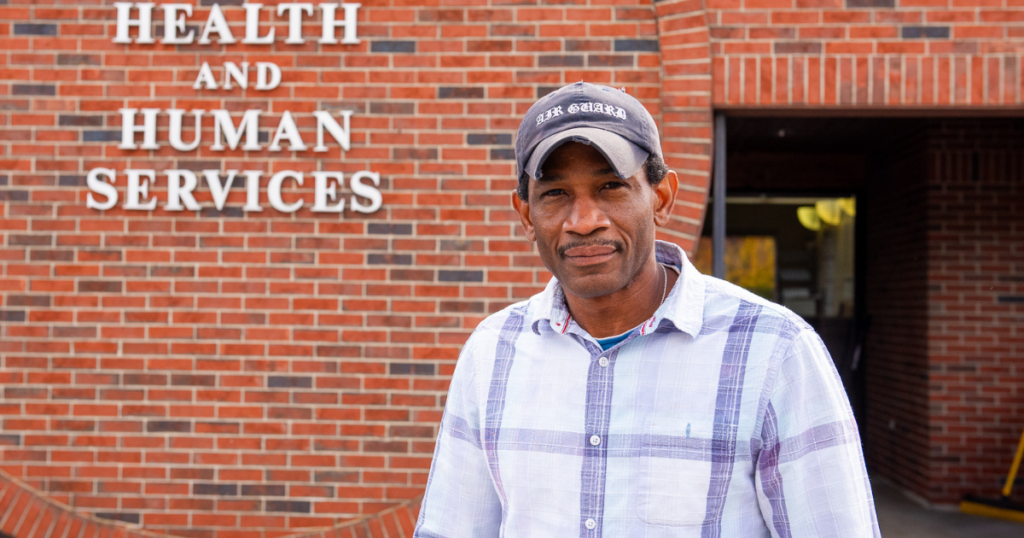Kevin shared his story as part of MECEP’s State of Working Maine 2024 report. Click here to read the full report.
Kevin has worked for the Department of Health and Human Services (DHHS) for almost 13 years. As an eligibility specialist, he helps connect vulnerable Mainers with the safety net resources they need. Before becoming a state employee, Kevin served in a similar role in the private sector, helping Mainers facing barriers to entering the workforce find sustainable employment.
One in every five eligibility specialist positions at DHHS is vacant. Our HR person said they had 34 people signed up to be interviewed for these vacant jobs. Some left after the interview. Some trained for a week and then didn’t come back, because they saw how much is entailed. We’re deciphering financial reports and bank records. We’re making sure we’re applying the correct statutes and the correct exemptions for each person. We have people’s lives in our hands. When a potential new employee comes in and sees the volume of work and the requirements they say, “No, I don’t want to do this. This is not what I thought it would be.” The pay does not align with the job requirements.
I haven’t received a pay increase in over five years. Aside from the minimal increases the union won through bargaining and arbitration, I haven’t realized any significant growth in my income. I do have some savings, but that dwindles away every year. I have a mortgage to pay. I have children in college. The starting salary for an eligibility specialist in Maine is around $41K and maxes out at $57,190. The same position in Vermont starts at $52K. In Massachusetts, it starts at $59K. In both Vermont and Massachusetts, the salary maxes out at $81K.
The Governor would say that since she took over, state employee salaries have increased 24%. And that’s true. No one is disputing that. But we’ve always been behind, and we continue to be behind. Even though wages increased 24%, it’s not keeping up with inflation. There’s still a 14% gap.
Maine’s slogan is “Maine, the way life should be.” But not every Mainer is living that life. All Maine workers should all be able to have a vacation in vacation land. But they can’t, because they’re working. Some of them are working two or three jobs. Even though I’m in a two-income household, I have a second job to make sure we make ends meet.
There are people in my department who receive safety net benefits themselves. They’ve been working for the state for 20 years, and still, after all that time, they make $20 an hour. You can’t live like that. It’s disheartening when your child works at McDonalds and makes the same amount of money as you. It makes you think, “Why am I doing this?” I’m making sure people have medical insurance and food to eat, and I’m not appreciated or compensated for the work that I do. It just knocks you down.
Maine survives on the back of state employees. It’s just that simple. We carry the load with our taxes and with our work. We make sure that the streets are paved and plowed. We make sure that the people who have less can survive and their basic needs are met. We want everyone in the state to have a decent life. We need to make sure that state employees are paid fairly, so we can provide the service and support that the people of Maine depend on us to do.”




